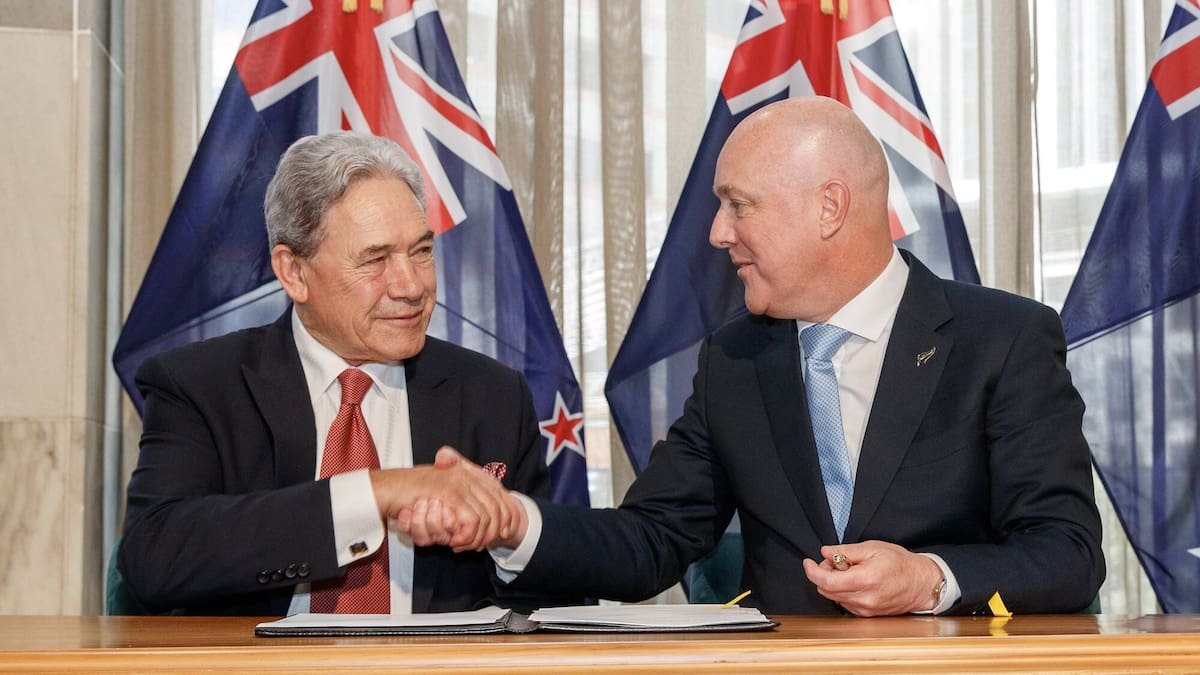“The minimum value of the house that can be bought or built will be set at $5 million – which equates to less than 1 per cent of New Zealand houses.”
Luxon said this change “navigates a path between those who do not want foreign ownership opened up, and the desire to attract high net worth investors by deepening their connection to our country to help grow the economy”.
There’s been 308 applications for this visa from around 1000 applicants. Many of these people are from the United States, China and Hong Kong. The applications received amount to a potential total minimum investment of about $1.8 billion.
However, it’s not expected that every person who receives one of these visas would want to purchase property here.
This move represents a major change in direction for foreign investment into New Zealand after the Labour-NZ First Government limited the ability of non-residents and non-citizens to purchase homes here. There was room for some exemptions.
The ban, announced in 2017, was intended to stop foreign speculators buying up homes in New Zealand, which was seen as a contributor to house price increases. However, the likes of National and Act opposed it.

NZ First leader Winston Peters has been vocal for years about pushing back against foreign ownership.
For example, ahead of the 2023 election, Peters posted on X (formerly Twitter) about how his party, when last in Government, had “ensured our housing market was for kiwi residents only and banned non-resident foreign buyers.
“Or stance hasn’t changed,” the NZ First leader said.
“In a property-owning democracy the government’s first priority for home ownership should be New Zealanders – not allowing a gross distortion of the market by deep-pocketed foreigners who don’t care about struggling kiwis and who just want profits and an asset bolthole if things go wrong in their own country.”
In July, Peters told the Herald his party wasn’t “softening” its approach to foreign ownership, but he was open to investors pumping millions of dollars into New Zealand’s economy to buy a home here.
He wouldn’t confirm at the time what the investment threshold was but did indicate it would be above $2 million.
“The idea that for $2 million you could come into this country and get a key and that’s your investment was a nonsense,” Peters told the Herald.
“We said so before the election. We also debunked the costings for it, and were joined not long after that by economists who said that New Zealand First was right.
“We’re saying if you’re coming here with millions of dollars to invest in this country, then yes, you could buy a house, and we’re setting the terms for that.”
It was National’s 2023 election policy to impose a 15% tax on overseas people who want to purchase property valued at more than $2m. That policy was kiboshed by NZ First during coalition negotiations.
Luxon has since admitted $2 million may have been too low, but $5 million may be more appropriate.
The Government made changes to the Active Investor Plus Visa earlier this year, introducing two categories in which foreigners can invest. This provides a pathway to residency for investors after keeping their funds invested for a particular period of time.
The Growth category requires a minimum of $5 million in either direct investments or managed funds for three years, while the Balanced category requires at least $10 million across a variety of options like bonds, new property developments, and philanthropy for five years.
Last week, Immigration Minister Erica Stanford announced a new visa to attract foreign businesspeople to New Zealand.
It will give foreign businesspeople investing $2 million into an existing business here a fast-track to residency in New Zealand. A $1m investment comes with a three-year work-to-residency pathway.
If the business is worth $1m or $2m, they’d have to purchase the business. If it was worth more than that, they’d have to invest at least 25% of its total value.
Jamie Ensor is a political reporter in the NZ Herald press gallery team based at Parliament. He was previously a TV reporter and digital producer in the Newshub press gallery office. In 2025, he was a finalist for Political Journalist of the Year at the Voyager Media Awards.





